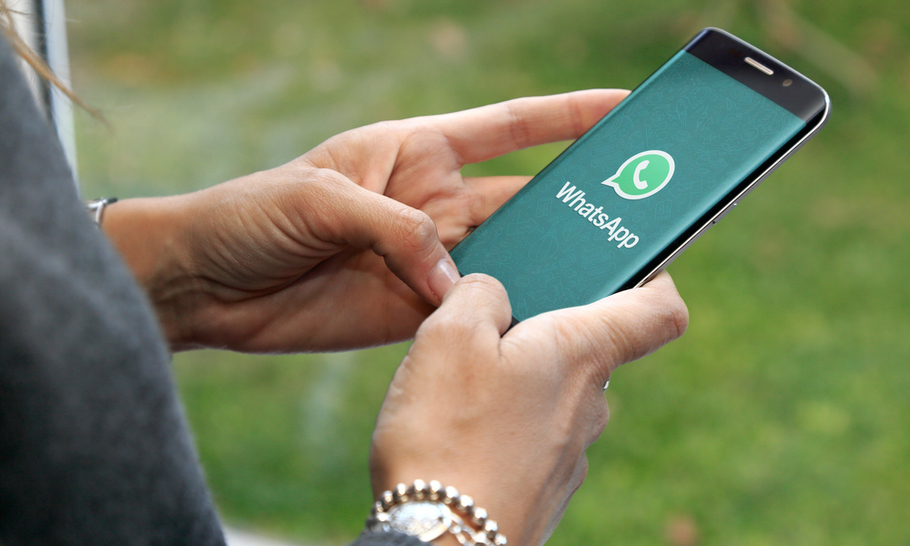Welcome to all the news that’s unfit to share in this WhatsApp election

Since the start of this election, I’ve had an average of four politically motivated messages a day through WhatsApp. These come from various social and friendship groups: most contain an “amusing” image with a gag headline. They can reference everything from the discovery of Corbyn’s “money forest” through to rumours about the sexual conduct of Boris. Some are amusing, a few are disgusting, and most are libellous. I would never expect to see any of these posts on Facebook or Twitter. WhatsApp means you are safe in the knowledge that you’re talking to a closed group.
Globally, WhatsApp has over 1.6 billion users and has become a primary source of communication in Latin America, India, Pakistan and large parts of Europe, including Spain, France and the United Kingdom. To put the size of WhatsApp into context: it’s smaller than its owners, Facebook , which boasts 2.45 billion users, but it dwarfs Twitter’s 321 million active users.
We are well accustomed to issues around how social media, and Facebook particularly, has impacted the democratic process, especially through “fake news”. In the United States, the Mueller Report on the investigation into Russian interference in the 2016 presidential election produced clear evidence that Facebook was used as a tool to spread misinformation throughout the electorate. In this country all eyes have been trained on platforms such as Facebook and Twitter over the last five weeks to see if there is evidence of deliberate deception in this election. However, if fake news is to be spread, we’re looking in the wrong direction. Such misinformation is not going land on Facebook or Twitter any more. In 2019, it’s all about WhatsApp.
This country has been blind to WhatsApp as a propaganda tool because we tend to look across the Atlantic for political developments, good or bad. WhatsApp, however, is not actually very popular in the USA, where mobile phone companies have offered free texts for decades. Most Americans us e phone texts or Facebook messenger to communicate with groups. Only about 10 per cent there prefer WhatsApp’s free and secure service. Therefore, the British commentariat have largely ignored WhatsApp as an agent of fake news, for no other reason than it’s not an issue in the US.
The use of WhatsApp in Brazil is similar to the UK: with over 60 per cent of both populations using the platform. In Brazil 44 per cent of the electorate use WhatsApp to read, among other things, political information. During the October 2018 Brazilian presidential election there was clear evidence that politicians bought a service called “mass blasts,” using the candidate’s list of WhatsApp users or buying lists from agencies specialising in digital strategy. This would be used to broadcast fake news.
In the UK things are a little different, as users are not as willing to sign up to WhatsApp groups with people they do not know. However, Momentum have a clear strategy when it comes to WhatsApp, by encouraging all members to join its groups so they can pass on images, gags and messages. Members of these group are then told to pass the messages on to their friends and family.
The Conservatives have clearly been dabbling in WhatsApp as well. Last month The Guardian found evidence of a pro-Conservative WhatsApp message to a group associated with India’s ruling Hindu nationalist party. Readers were warned about connections between the Labour party and Pakistan before being told to “pass this to every true Indian”.
To be fair to WhatsApp, they have stopped users forwarding messages to more than five groups at the same time. This is stop people sending the same message to thousands of phones in minutes. However, when a political WhatsApp message does go viral in the UK it tends to be forwarded from a friend or family member, increasing the potency of the message as it comes from a trusted source.
The nature of WhatsApp’s end to end encryption means you can never tell where a viral message originated from. In the pre-digital world, we were told everyone on the planet was only five degrees of separation from Kevin Bacon. In the digital world, we’re only three WhatsApp Groups from the Kremlin. Keep that in mind the next time you get a WhatsApp message from your mate down the pub about Boris’s sixth child.





